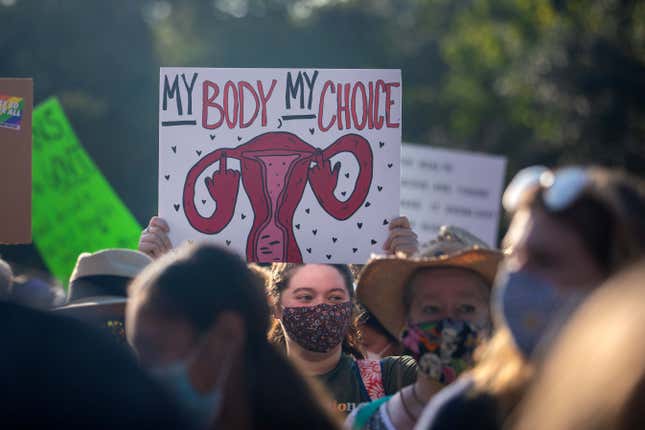Idaho, Texas Abortion Bans Are Just Another Tool For Rapists to Punish Victims
Abusers have no shortage of legal avenues available to them to silence or terrorize their victims. Idaho's abortion ban adds to this.
AbortionPolitics

As of this week, Idaho has become the first state in the nation to pass copycat legislation mimicking Texas’ near-total abortion ban, which is enforced by empowering citizens to sue abortion providers and anyone who helped someone get an abortion for at least $10,000. There’s just one minor difference between the two bans: Idaho’s bill allows only the father of the fetus or his immediate family members, rather than any random person, to sue those who help someone have an abortion or the abortion provider for at least $20,000.
Notably, Idaho’s ban allows rapists and their family members to essentially profit off their victim’s pregnancy, giving them the right to sue those who “aid and abet” their victim in having an abortion—this, of course, can include their victims’ family members, if they helped them have an abortion. Slate notes that where Texas’ ban invites “Lyft drivers, high school counselors, and neighbors” to police someone’s pregnancy, Idaho’s has an added dimension of cruelty, as it specifically empowers abusive intimate partners’ extended family members to “coerce and pressure” their victim.
The Idaho bill’s exception for rape is highly limited as it requires people to report their rape to the police prior to their abortion, and opens the door for lawsuits in the extremely high likelihood that they don’t report their rape. As bans like this spread across the country, they add yet another tool to abusers’ already expansive toolbox to sue and exact legal punishment on their victims.
-

-

-

-

-

-

-

-

-

-

-

-

-

-

-

-

-

-

-

-

-

-

-

-

-

-

-

-

-

-

-

-

-

-

-

-

-

-

-

-








































